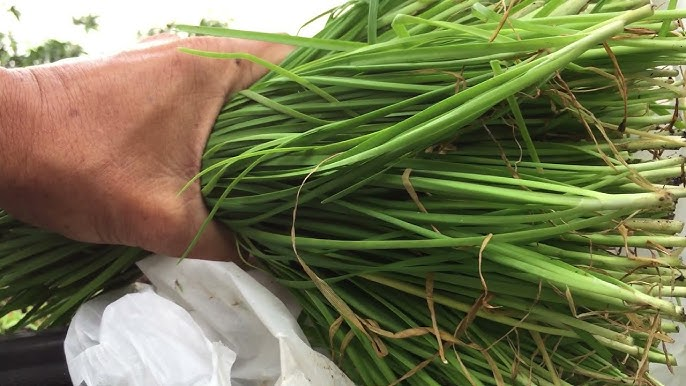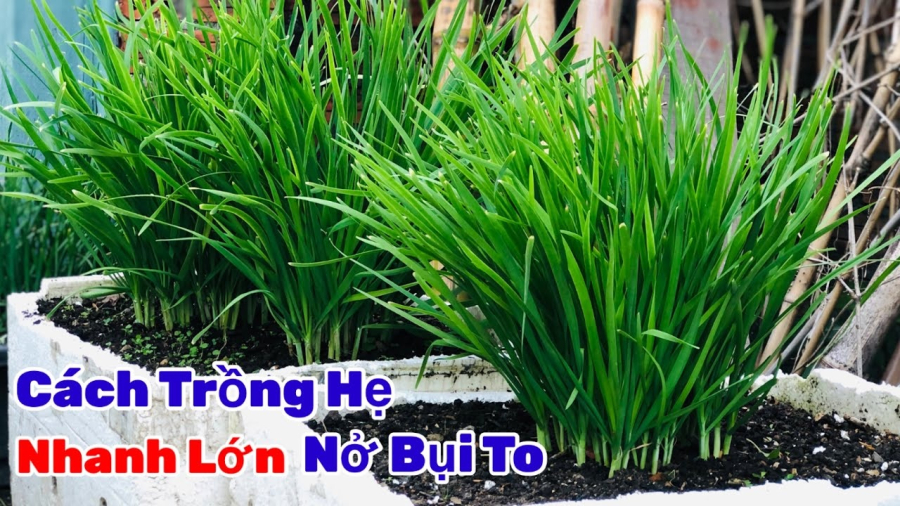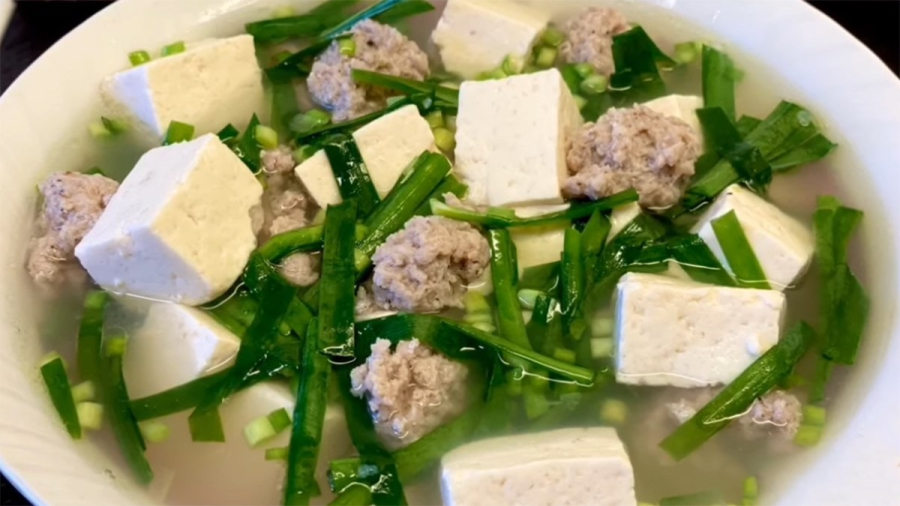Resembling an onion plant, but with a distinct aroma, chive is a herb used for cooking soups, stir-frying meat, especially commonly found in wonton noodle soup. However, many people do not like the smell and taste of chives.

According to the consensus, chives have names like khởi dương thảo, cửu thái tử, cửu thái. The plant is scientifically named Allium ramosum L., belonging to the onion family. Chives are believed to have the ability to treat back pain, colds, constipation, skin infections, and worm infections.
The parts used are chive leaves, chive seeds, and chive roots. In culinary, chive leaves and chive flower buds are incredibly delicious. Chive leaves contain many vitamins and dietary fiber, help improve bowel movements, support digestion, treat constipation, prevent colon cancer. Chive leaves also have the effect of dissipating blood stasis, promoting blood circulation, and detoxification.
Prominent uses of chives
Antibacterial for the digestive tract: In addition to being a condiment, chives also help treat coughs and sore throats. You can mash chives and use the juice to gargle, or steam chives with honey. Chives have valuable compounds such as sulfur, saponin, and bitter substances… Especially, odorin in chives is considered a specific antibiotic against Staphylococcus aureus and Bacillus coli bacteria. You can use fresh chive water to disinfect the digestive tract, treat sore throats, and heal external acne.
Lowering blood pressure and cholesterol: Like garlic, chives contain natural antibiotics allicin, which reduces blood pressure and prevents the production of cholesterol (bad fat) in the body. It also has antibacterial and antifungal properties, eliminating bacteria and fungi in the intestines, ensuring a healthy digestive system.
Stimulating digestion: Chives used in Traditional Chinese Medicine help stimulate digestion, treat constipation, and diarrhea. Chives are beneficial for the digestive system, good for the liver and stomach, helping to relieve constipation and stomach pain. Ingredients such as protein, fat, calcium, iron, carotene, vitamin C, and fiber in chive leaves can promote digestion and increase intestinal motility; thereby creating a good taste, stimulating appetite, very suitable for constipated patients.
Supporting cancer prevention: Chives contain sulfur, carotene, vitamin A, which are nutrients capable of inhibiting the development and spreading of cancer cells throughout the body. Therefore, adding dishes made from chive leaves is highly recommended.
Enhancing sexual health: This plant will help men nourish their kidneys and strengthen their yang. Therefore, chive seeds are often soaked in alcohol with Morinda officinalis, ginseng, velvet antler. In addition, chive leaf soup and fresh chive water also help treat impotence, spermatorrhea, premature ejaculation. Moreover, women who eat chives regularly can reduce back pain, treat frequent urination, gas problems, and frigidity.
Delicious dishes with chives
Stir-fried shrimp and squid with chives
Ingredients include 150g of shrimp; 100g of squid, sliced into rounds; a small bundle of chives; 1/4 white or purple onion; Garlic, scallion, fish sauce, salt, seasoning powder; Green chili.
Directions: Fry the garlic until fragrant, then add the peeled, cleaned shrimp and squid slices. Season with fish sauce, salt, and pepper to taste. Stir-fry for a while, then add the green chili. When the chili, shrimp, and squid are cooked and well-absorbed the spices, add the chives and scallions, stir well and turn off the heat.

Chive and tofu soup with meat
Ingredients include chives, minced pork (or pork ribs), tofu, seasonings.
Directions: Stir-fry the meat (ribs, seasoned to taste) until almost cooked, then add the chives and stir. Then put it in a pot (enough water for the whole family to enjoy), when it is almost boiling, add the finely chopped tofu.

Chive crab soup
When cooking the crab broth, add chives and sprinkle a little pepper. To make the crab delicious and not fishy, when grinding it, add a little minced chili to eliminate the smell. When the broth has boiled, add crab water so that the crab won’t be spoiled)






























